Deck 10: Derivatives
Question
Question
Question
Question
Question
Question
Question
Question
Question
Question
Question
Question
Question
Question
Question
Question
Question
Question
Question
Question
Question
Question
Question
Question
Question
Question
Question
Question
Question
Question
Question
Question
Question
Question
Question
Question
Question
Question
Question
Question
Question
Question
Question
Question
Question
Question
Question
Question
Question
Question
Question
Question
Question
Question
Question
Question
Question
Question
Question
Question
Question
Question
Question
Question
Question
Question
Question
Question
Question
Question
Question
Question
Question
Question
Question
Question
Question
Question
Question
Question

Unlock Deck
Sign up to unlock the cards in this deck!
Unlock Deck
Unlock Deck
1/248
Play
Full screen (f)
Deck 10: Derivatives
1
Use the graph of  and the given c-value to find
and the given c-value to find  .
. 
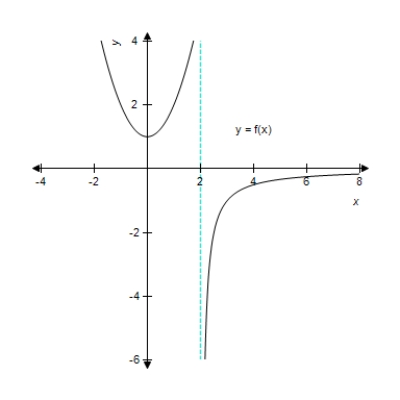
A)2
B)-2
C)6
D)0
E)does not exist
 and the given c-value to find
and the given c-value to find  .
. 

A)2
B)-2
C)6
D)0
E)does not exist
does not exist
2
Use properties of limits and algebraic methods to find the limit, if it exists. 
A)
B)-3
C)
D)
E)does not exist

A)

B)-3
C)

D)

E)does not exist
-3
3
Use properties of limits and algebraic methods to find the limit, if it exists. 
A)97
B)99
C)94
D)102
E)does not exist

A)97
B)99
C)94
D)102
E)does not exist
99
4
Use the graph of  and the given c-value to find
and the given c-value to find  .
. 
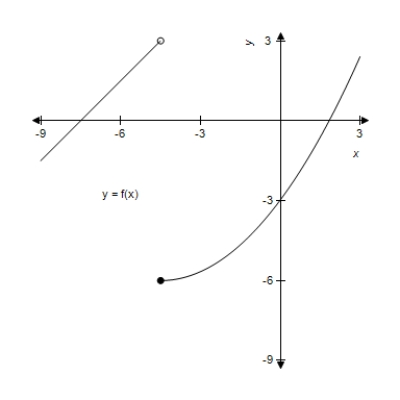
A)-8
B)-6
C)3
D)-4
E)does not exist
 and the given c-value to find
and the given c-value to find  .
. 

A)-8
B)-6
C)3
D)-4
E)does not exist

Unlock Deck
Unlock for access to all 248 flashcards in this deck.
Unlock Deck
k this deck
5
Use properties of limits and algebraic methods to find the limit, if it exists. 
A)
B)
C)
D)
E)does not exist

A)

B)

C)

D)

E)does not exist

Unlock Deck
Unlock for access to all 248 flashcards in this deck.
Unlock Deck
k this deck
6
Use properties of limits and algebraic methods to find  if the limit exists.
if the limit exists.
A)0
B)10
C)∞
D)-10
E)5
 if the limit exists.
if the limit exists. A)0
B)10
C)∞
D)-10
E)5

Unlock Deck
Unlock for access to all 248 flashcards in this deck.
Unlock Deck
k this deck
7
A graph of  is shown and a c-value is given. For this problem, use the graph to find
is shown and a c-value is given. For this problem, use the graph to find  .
. 
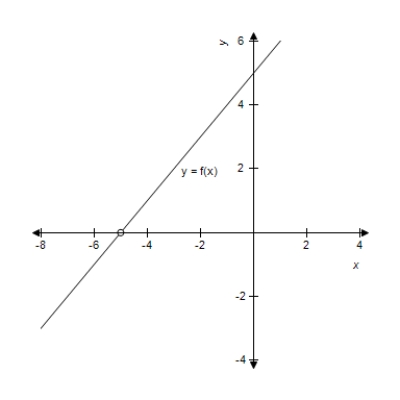
A)0
B)5
C)-5
D)-6
E)does not exist
 is shown and a c-value is given. For this problem, use the graph to find
is shown and a c-value is given. For this problem, use the graph to find  .
. 

A)0
B)5
C)-5
D)-6
E)does not exist

Unlock Deck
Unlock for access to all 248 flashcards in this deck.
Unlock Deck
k this deck
8
Complete the table and use it to predict the limit, if it exists. 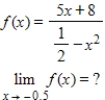
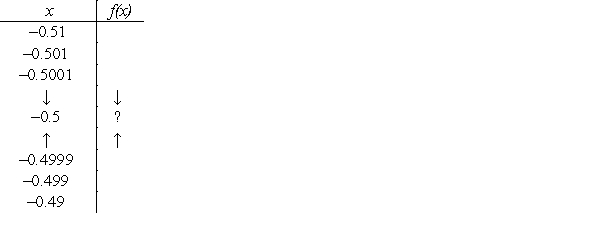
A)44.0
B)-22.0
C)22.0
D)-0.5
E)does not exist


A)44.0
B)-22.0
C)22.0
D)-0.5
E)does not exist

Unlock Deck
Unlock for access to all 248 flashcards in this deck.
Unlock Deck
k this deck
9
A graph of  is shown and a c-value is given. For this problem, use the graph to find
is shown and a c-value is given. For this problem, use the graph to find  .
. 
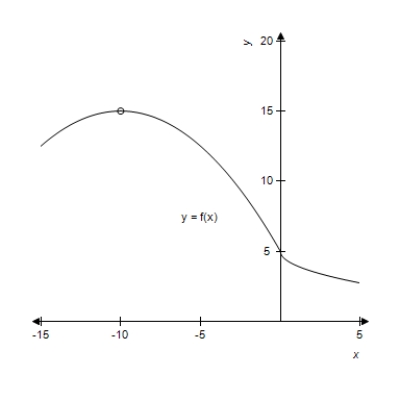
A)5
B)0
C)-15
D)15
E)does not exist
 is shown and a c-value is given. For this problem, use the graph to find
is shown and a c-value is given. For this problem, use the graph to find  .
. 

A)5
B)0
C)-15
D)15
E)does not exist

Unlock Deck
Unlock for access to all 248 flashcards in this deck.
Unlock Deck
k this deck
10
Use properties of limits and algebraic methods to find the limit, if it exists. 
A)-45
B)54
C)45
D)-54
E)does not exist

A)-45
B)54
C)45
D)-54
E)does not exist

Unlock Deck
Unlock for access to all 248 flashcards in this deck.
Unlock Deck
k this deck
11
A graph of  is shown and a c-value is given. For this problem, use the graph to find
is shown and a c-value is given. For this problem, use the graph to find  .
. 
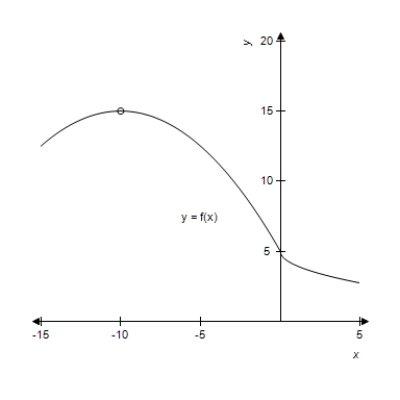
A)10
B)-15
C)0
D)15
E)does not exist
 is shown and a c-value is given. For this problem, use the graph to find
is shown and a c-value is given. For this problem, use the graph to find  .
. 

A)10
B)-15
C)0
D)15
E)does not exist

Unlock Deck
Unlock for access to all 248 flashcards in this deck.
Unlock Deck
k this deck
12
Complete the table and use it to predict the limit, if it exists. 
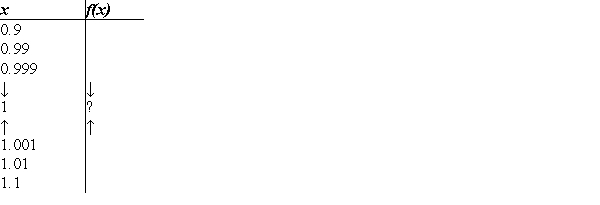
A)-5
B)5
C)-4
D)4
E)does not exist


A)-5
B)5
C)-4
D)4
E)does not exist

Unlock Deck
Unlock for access to all 248 flashcards in this deck.
Unlock Deck
k this deck
13
Use the graph of  and the given c-value to find
and the given c-value to find  .
. 
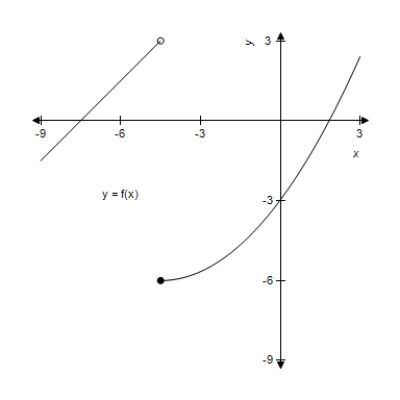
A)-6
B)-5
C)-1
D)3
E)does not exist
 and the given c-value to find
and the given c-value to find  .
. 

A)-6
B)-5
C)-1
D)3
E)does not exist

Unlock Deck
Unlock for access to all 248 flashcards in this deck.
Unlock Deck
k this deck
14
Use properties of limits and algebraic methods to find the limit, if it exists. 
A)
B)
C)
D)
E)does not exist

A)

B)

C)

D)

E)does not exist

Unlock Deck
Unlock for access to all 248 flashcards in this deck.
Unlock Deck
k this deck
15
Use the graph of  and the given c-value to find
and the given c-value to find  .
. 
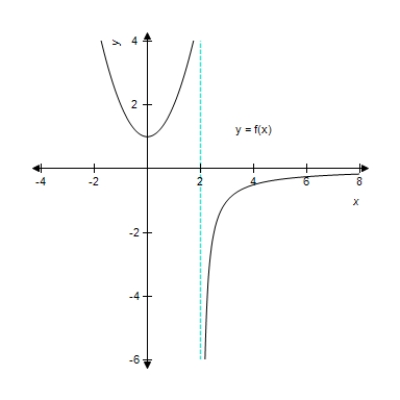
A)4
B)0
C)2
D)-6
E)does not exist
 and the given c-value to find
and the given c-value to find  .
. 

A)4
B)0
C)2
D)-6
E)does not exist

Unlock Deck
Unlock for access to all 248 flashcards in this deck.
Unlock Deck
k this deck
16
Use the graph of  and the given c-value to find
and the given c-value to find  .
. 
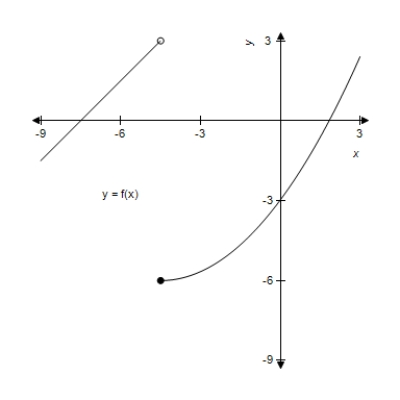
A)-6
B)-1
C)3
D)does not exist
 and the given c-value to find
and the given c-value to find  .
. 

A)-6
B)-1
C)3
D)does not exist

Unlock Deck
Unlock for access to all 248 flashcards in this deck.
Unlock Deck
k this deck
17
Use the graph of  and the given c-value to find
and the given c-value to find  .
. 
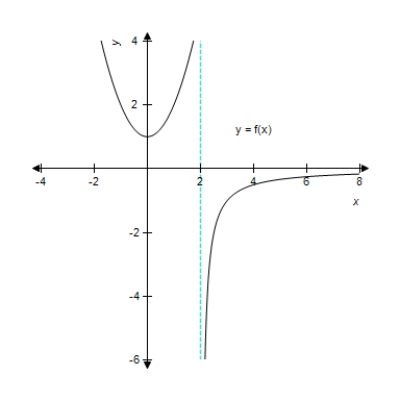
A)-6
B)0
C)2
D)6
E)does not exist
 and the given c-value to find
and the given c-value to find  .
. 

A)-6
B)0
C)2
D)6
E)does not exist

Unlock Deck
Unlock for access to all 248 flashcards in this deck.
Unlock Deck
k this deck
18
Use the graph of  and the given c-value to find
and the given c-value to find  .
. 
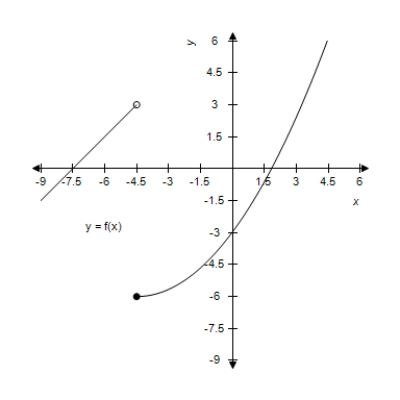
A)
B)-8
C)3
D)-1
E)does not exist
 and the given c-value to find
and the given c-value to find  .
. 

A)

B)-8
C)3
D)-1
E)does not exist

Unlock Deck
Unlock for access to all 248 flashcards in this deck.
Unlock Deck
k this deck
19
A graph of  is shown and a c-value is given. For this problem, use the graph to find
is shown and a c-value is given. For this problem, use the graph to find  .
. 
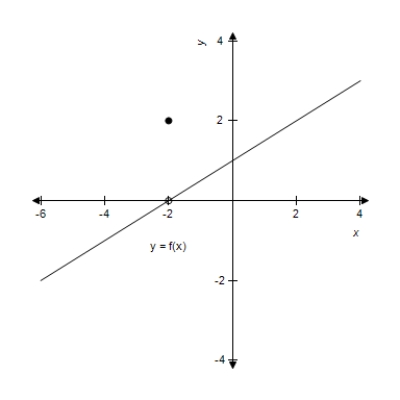
A)0
B)2
C)-6
D)-4
E)does not exist
 is shown and a c-value is given. For this problem, use the graph to find
is shown and a c-value is given. For this problem, use the graph to find  .
. 

A)0
B)2
C)-6
D)-4
E)does not exist

Unlock Deck
Unlock for access to all 248 flashcards in this deck.
Unlock Deck
k this deck
20
Use the graph of  and the given c-value to find
and the given c-value to find  .
. 
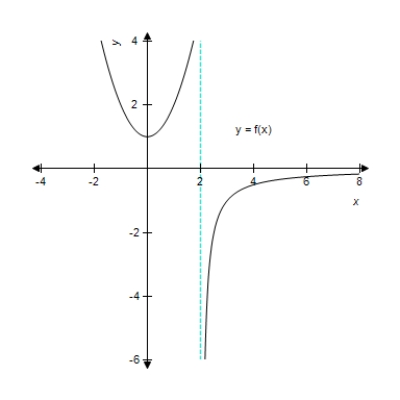
A)-6
B)0
C)8
D)2
E)does not exist
 and the given c-value to find
and the given c-value to find  .
. 

A)-6
B)0
C)8
D)2
E)does not exist

Unlock Deck
Unlock for access to all 248 flashcards in this deck.
Unlock Deck
k this deck
21
Suppose that the cost C in dollars of obtaining water that contains p percent impurities is given by  . Find
. Find  , if it exists.
, if it exists.
A)$0
B)$13
C)$117
D)$1,300
E)does not exist
 . Find
. Find  , if it exists.
, if it exists. A)$0
B)$13
C)$117
D)$1,300
E)does not exist

Unlock Deck
Unlock for access to all 248 flashcards in this deck.
Unlock Deck
k this deck
22
If the revenue for a product (in dollars) is  and the average revenue per unit is
and the average revenue per unit is  ,
,  , find
, find  .
.
A)$520 per unit
B)$545 per unit
C)$530 per unit
D)$0 per unit
E)does not exist
 and the average revenue per unit is
and the average revenue per unit is  ,
,  , find
, find  .
. A)$520 per unit
B)$545 per unit
C)$530 per unit
D)$0 per unit
E)does not exist

Unlock Deck
Unlock for access to all 248 flashcards in this deck.
Unlock Deck
k this deck
23
If  and
and  , find
, find  .
.
A)
B)
C)-10
D)
E)does not exist
 and
and  , find
, find  .
. A)

B)

C)-10
D)

E)does not exist

Unlock Deck
Unlock for access to all 248 flashcards in this deck.
Unlock Deck
k this deck
24
Determine whether the function is continuous or discontinuous at the given x-value. 
A)continuous
B)discontinuous

A)continuous
B)discontinuous

Unlock Deck
Unlock for access to all 248 flashcards in this deck.
Unlock Deck
k this deck
25
For the given x-value, use the figure to determine whether the function is continuous or discontinuous at that x-value. 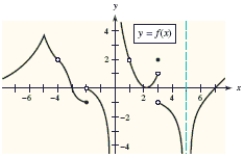

A)discontinuous
B)continuous


A)discontinuous
B)continuous

Unlock Deck
Unlock for access to all 248 flashcards in this deck.
Unlock Deck
k this deck
26
Suppose that the cost C in dollars of obtaining water that contains p percent impurities is given by  . Find
. Find  , if it exists.
, if it exists.
A)$0
B)$20
C)$200
D)$2,000
E)does not exist
 . Find
. Find  , if it exists.
, if it exists. A)$0
B)$20
C)$200
D)$2,000
E)does not exist

Unlock Deck
Unlock for access to all 248 flashcards in this deck.
Unlock Deck
k this deck
27
Graph the function with a graphing utility and use it to predict the limit. Check your work either by using the table feature of the graphing utility or by finding the limit algebraically. 
A)0
B)9
C)
D)
E)does not exist

A)0
B)9
C)

D)

E)does not exist

Unlock Deck
Unlock for access to all 248 flashcards in this deck.
Unlock Deck
k this deck
28
Graph the function with a graphing utility and use it to predict the limit. Check your work either by using the table feature of the graphing utility or by finding the limit algebraically. 
A)18
B)4
C)
D)0
E)does not exist

A)18
B)4
C)

D)0
E)does not exist

Unlock Deck
Unlock for access to all 248 flashcards in this deck.
Unlock Deck
k this deck
29
Graph the function with a graphing utility and use it to predict the limit. Check your work either by using the table feature of the graphing utility or by finding the limit algebraically. 
A)
B)18
C)
D)0
E)does not exist

A)

B)18
C)

D)0
E)does not exist

Unlock Deck
Unlock for access to all 248 flashcards in this deck.
Unlock Deck
k this deck
30
If the profit function for a product is given by  , find
, find  .
.
A)-3,600
B)-1,600
C)-2,725
D)-4,100
E)does not exist
 , find
, find  .
. A)-3,600
B)-1,600
C)-2,725
D)-4,100
E)does not exist

Unlock Deck
Unlock for access to all 248 flashcards in this deck.
Unlock Deck
k this deck
31
A certain calling card costs 6.3 cents per minute to make a call, rounded up to the nearest minute. However, when the card is used at a pay phone, there is an additional 63 cent connection fee. If  is the charge from a pay phone for a call lasting t minutes, create a table of charges for calls lasting close to 1 minute and use it to find the following limit, if it exists. Round your answer to the nearest cent.
is the charge from a pay phone for a call lasting t minutes, create a table of charges for calls lasting close to 1 minute and use it to find the following limit, if it exists. Round your answer to the nearest cent. 
A)$0
B)$0.56
C)$0.69
D)$0.78
E)does not exist
 is the charge from a pay phone for a call lasting t minutes, create a table of charges for calls lasting close to 1 minute and use it to find the following limit, if it exists. Round your answer to the nearest cent.
is the charge from a pay phone for a call lasting t minutes, create a table of charges for calls lasting close to 1 minute and use it to find the following limit, if it exists. Round your answer to the nearest cent. 
A)$0
B)$0.56
C)$0.69
D)$0.78
E)does not exist

Unlock Deck
Unlock for access to all 248 flashcards in this deck.
Unlock Deck
k this deck
32
Determine whether the function is continuous or discontinuous at the given x-value. 
A)continuous
B)discontinuous

A)continuous
B)discontinuous

Unlock Deck
Unlock for access to all 248 flashcards in this deck.
Unlock Deck
k this deck
33
A certain calling card costs 6.1 cents per minute to make a call, rounded up to the nearest minute. However, when the card is used at a pay phone, there is an additional 61 cent connection fee. If  is the charge from a pay phone for a call lasting t minutes, create a table of charges for calls lasting close to 1 minute and use it to find the following limit, if it exists. Round your answer to the nearest cent.
is the charge from a pay phone for a call lasting t minutes, create a table of charges for calls lasting close to 1 minute and use it to find the following limit, if it exists. Round your answer to the nearest cent. 
A)$0
B)$0.61
C)$0.73
D)$0.67
E)does not exist
 is the charge from a pay phone for a call lasting t minutes, create a table of charges for calls lasting close to 1 minute and use it to find the following limit, if it exists. Round your answer to the nearest cent.
is the charge from a pay phone for a call lasting t minutes, create a table of charges for calls lasting close to 1 minute and use it to find the following limit, if it exists. Round your answer to the nearest cent. 
A)$0
B)$0.61
C)$0.73
D)$0.67
E)does not exist

Unlock Deck
Unlock for access to all 248 flashcards in this deck.
Unlock Deck
k this deck
34
If  and
and  , find
, find  .
.
A)20
B)6
C)-2
D)-14
E)does not exist
 and
and  , find
, find  .
. A)20
B)6
C)-2
D)-14
E)does not exist

Unlock Deck
Unlock for access to all 248 flashcards in this deck.
Unlock Deck
k this deck
35
If the revenue for a product (in dollars) is  , and the average revenue per unit is
, and the average revenue per unit is  ,
,  , find
, find  .
.
A)$500 per unit
B)$0.8 per unit
C)$50 per unit
D)$0 per unit
E)does not exist
 , and the average revenue per unit is
, and the average revenue per unit is  ,
,  , find
, find  .
. A)$500 per unit
B)$0.8 per unit
C)$50 per unit
D)$0 per unit
E)does not exist

Unlock Deck
Unlock for access to all 248 flashcards in this deck.
Unlock Deck
k this deck
36
Determine whether the given function is continuous. If it is not, identify where it is discontinuous. 
A)discontinuous at
B)discontinuous at
C)discontinuous at
D)discontinuous at
E)continuous everywhere

A)discontinuous at

B)discontinuous at

C)discontinuous at

D)discontinuous at

E)continuous everywhere

Unlock Deck
Unlock for access to all 248 flashcards in this deck.
Unlock Deck
k this deck
37
A certain calling card costs 6.8 cents per minute to make a call, rounded up to the nearest minute. However, when the card is used at a pay phone, there is an additional 68 cent connection fee. If  is the charge from a pay phone for a call lasting t minutes, create a table of charges for calls lasting close to 1 minute and use it to find the following limit, if it exists. Round your answer to the nearest cent.
is the charge from a pay phone for a call lasting t minutes, create a table of charges for calls lasting close to 1 minute and use it to find the following limit, if it exists. Round your answer to the nearest cent. 
A)$0
B)$0.68
C)$0.75
D)$0.82
E)does not exist
 is the charge from a pay phone for a call lasting t minutes, create a table of charges for calls lasting close to 1 minute and use it to find the following limit, if it exists. Round your answer to the nearest cent.
is the charge from a pay phone for a call lasting t minutes, create a table of charges for calls lasting close to 1 minute and use it to find the following limit, if it exists. Round your answer to the nearest cent. 
A)$0
B)$0.68
C)$0.75
D)$0.82
E)does not exist

Unlock Deck
Unlock for access to all 248 flashcards in this deck.
Unlock Deck
k this deck
38
If  and
and  , find
, find  .
.
A)-95
B)-85
C)-70
D)0
E)does not exist
 and
and  , find
, find  .
. A)-95
B)-85
C)-70
D)0
E)does not exist

Unlock Deck
Unlock for access to all 248 flashcards in this deck.
Unlock Deck
k this deck
39
Use properties of limits and algebraic methods to find the limit, if it exists. 
A)0
B)-2
C)2
D)7
E)does not exist

A)0
B)-2
C)2
D)7
E)does not exist

Unlock Deck
Unlock for access to all 248 flashcards in this deck.
Unlock Deck
k this deck
40
Use properties of limits and algebraic methods to find the limit, if it exists. 
A)0
B)
C)
D)
E)does not exist

A)0
B)

C)

D)

E)does not exist

Unlock Deck
Unlock for access to all 248 flashcards in this deck.
Unlock Deck
k this deck
41
Graph the function using a window with  and
and  . What does the graph indicate about
. What does the graph indicate about 

A)-5
B)5
C)30
D)0
E)does not exist
 and
and  . What does the graph indicate about
. What does the graph indicate about 

A)-5
B)5
C)30
D)0
E)does not exist

Unlock Deck
Unlock for access to all 248 flashcards in this deck.
Unlock Deck
k this deck
42
Suppose that the average number of minutes M that it takes a new employee to assemble one unit of a product is given by  , where t is the number of days on the job. Is this function continuous for all
, where t is the number of days on the job. Is this function continuous for all 
A)Yes
B)No
 , where t is the number of days on the job. Is this function continuous for all
, where t is the number of days on the job. Is this function continuous for all 
A)Yes
B)No

Unlock Deck
Unlock for access to all 248 flashcards in this deck.
Unlock Deck
k this deck
43
Suppose that the cost C of removing p percent of the particulate pollution from the exhaust gases at an industrial site is given by  . Describe any discontinuities for C(p). Explain what each discontinuity means.
. Describe any discontinuities for C(p). Explain what each discontinuity means.
A)C(p) is discontinuous at
) This means that not all pollution can be removed.
B)C(p) is discontinuous at
) This means that none of the pollution can be removed.
C)C(p) is continuous everywhere.
D)C(p) is discontinuous at
) This means that not all pollution can be removed.
E)C(p) is discontinuous at
) This means that none of the pollution can be removed.
 . Describe any discontinuities for C(p). Explain what each discontinuity means.
. Describe any discontinuities for C(p). Explain what each discontinuity means. A)C(p) is discontinuous at

) This means that not all pollution can be removed.
B)C(p) is discontinuous at

) This means that none of the pollution can be removed.
C)C(p) is continuous everywhere.
D)C(p) is discontinuous at

) This means that not all pollution can be removed.
E)C(p) is discontinuous at

) This means that none of the pollution can be removed.

Unlock Deck
Unlock for access to all 248 flashcards in this deck.
Unlock Deck
k this deck
44
Use analytic methods to evaluate the limit and determine which type of asymptote (if any) it represents. You can verify your conclusion by graphing the function with a graphing utility, if one is available. 
A)limit = 3, vertical asymptote
B)limit = 6, horizontal asymptote
C)limit = 6, vertical asymptote
D)limit = 3, horizontal asymptote
E)does not exist

A)limit = 3, vertical asymptote
B)limit = 6, horizontal asymptote
C)limit = 6, vertical asymptote
D)limit = 3, horizontal asymptote
E)does not exist

Unlock Deck
Unlock for access to all 248 flashcards in this deck.
Unlock Deck
k this deck
45
This problem contains a function and its graph, where  . Use the graph to determine, as well as you can, the vertical asymptote. Check your conclusion by using the function to determine the vertical asymptote analytically.
. Use the graph to determine, as well as you can, the vertical asymptote. Check your conclusion by using the function to determine the vertical asymptote analytically. 
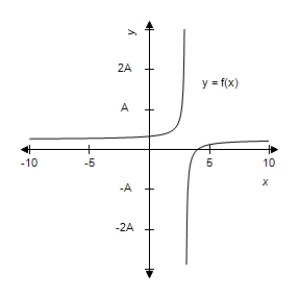
A)
B)
C)
D)
E)no vertical asymptote
 . Use the graph to determine, as well as you can, the vertical asymptote. Check your conclusion by using the function to determine the vertical asymptote analytically.
. Use the graph to determine, as well as you can, the vertical asymptote. Check your conclusion by using the function to determine the vertical asymptote analytically. 

A)

B)

C)

D)

E)no vertical asymptote

Unlock Deck
Unlock for access to all 248 flashcards in this deck.
Unlock Deck
k this deck
46
This problem contains a function and its graph, where  . Use the graph to determine, as well as you can,
. Use the graph to determine, as well as you can,  . Check your conclusion by using the function to determine
. Check your conclusion by using the function to determine  analytically.
analytically. 
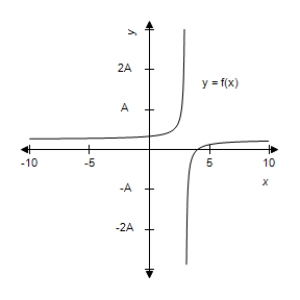
A)3
B)0
C)4
D)1
E)does not exist
 . Use the graph to determine, as well as you can,
. Use the graph to determine, as well as you can,  . Check your conclusion by using the function to determine
. Check your conclusion by using the function to determine  analytically.
analytically. 

A)3
B)0
C)4
D)1
E)does not exist

Unlock Deck
Unlock for access to all 248 flashcards in this deck.
Unlock Deck
k this deck
47
Determine whether the given function  is continuous. If
is continuous. If  is not continuous, identify where it is discontinuous and which condition(s) fails to hold.
is not continuous, identify where it is discontinuous and which condition(s) fails to hold.
A)
Is discontinuous at
Since
Is not defined and
Does not exist.
B)
Is discontinuous at
Since
Is not defined and
Does not exist.
C)
Is discontinuous at
Since
Is not defined and
Does not exist.
D)
Is continuous.
E)
Is discontinuous at
Since
Is not defined and
Does not exist.
 is continuous. If
is continuous. If  is not continuous, identify where it is discontinuous and which condition(s) fails to hold.
is not continuous, identify where it is discontinuous and which condition(s) fails to hold. A)

Is discontinuous at

Since

Is not defined and

Does not exist.
B)

Is discontinuous at

Since

Is not defined and

Does not exist.
C)

Is discontinuous at

Since

Is not defined and

Does not exist.
D)

Is continuous.
E)

Is discontinuous at

Since

Is not defined and

Does not exist.

Unlock Deck
Unlock for access to all 248 flashcards in this deck.
Unlock Deck
k this deck
48
Use analytic methods to evaluate the limit and determine which type of asymptote (if any) it represents. You can verify your conclusion by graphing the function with a graphing utility, if one is available. 
A)limit = 10, horizontal asymptote
B)limit = 10, vertical asymptote
C)limit = 4, horizontal asymptote
D)limit = 4, vertical asymptote
E)does not exist, no asymptote

A)limit = 10, horizontal asymptote
B)limit = 10, vertical asymptote
C)limit = 4, horizontal asymptote
D)limit = 4, vertical asymptote
E)does not exist, no asymptote

Unlock Deck
Unlock for access to all 248 flashcards in this deck.
Unlock Deck
k this deck
49
Use analytic methods to evaluate the limit and determine which type of asymptote (if any) it represents. You can verify your conclusion by graphing the function with a graphing utility, if one is available. 
A)limit = 0, vertical asymptote
B)limit = 0, horizontal asymptote
C)limit = 2, horizontal asymptote
D)limit = 2, vertical asymptote
E)does not exist

A)limit = 0, vertical asymptote
B)limit = 0, horizontal asymptote
C)limit = 2, horizontal asymptote
D)limit = 2, vertical asymptote
E)does not exist

Unlock Deck
Unlock for access to all 248 flashcards in this deck.
Unlock Deck
k this deck
50
Use analytic methods to find any point of discontinuity for the given function. 
A)
B)
C)
D)
E)continuous everywhere

A)

B)

C)

D)

E)continuous everywhere

Unlock Deck
Unlock for access to all 248 flashcards in this deck.
Unlock Deck
k this deck
51
Determine whether the given function is continuous. If it is not, identify where it is discontinuous. You can verify your conclusions by graphing the function with a graphing utility, if one is available. 
A)discontinuous at
B)discontinuous at
C)discontinuous at
D)discontinuous at
E)continuous everywhere

A)discontinuous at

B)discontinuous at

C)discontinuous at

D)discontinuous at

E)continuous everywhere

Unlock Deck
Unlock for access to all 248 flashcards in this deck.
Unlock Deck
k this deck
52
This problem contains a function and its graph, where  . Use the graph to determine, as well as you can, the horizontal asymptote. Check your conclusion by using the function to determine the horizontal asymptote analytically.
. Use the graph to determine, as well as you can, the horizontal asymptote. Check your conclusion by using the function to determine the horizontal asymptote analytically. 
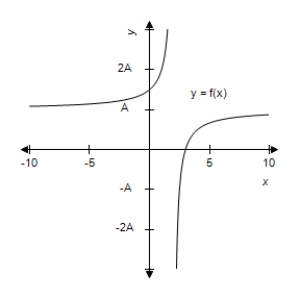
A)
B)
C)
D)
E)
 . Use the graph to determine, as well as you can, the horizontal asymptote. Check your conclusion by using the function to determine the horizontal asymptote analytically.
. Use the graph to determine, as well as you can, the horizontal asymptote. Check your conclusion by using the function to determine the horizontal asymptote analytically. 

A)

B)

C)

D)

E)


Unlock Deck
Unlock for access to all 248 flashcards in this deck.
Unlock Deck
k this deck
53
Determine whether the given function is continuous. If it is not, identify where it is discontinuous and which condition fails to hold. You can verify your conclusions by graphing the function with a graphing utility, if one is available. 
A)discontinuous at
B)discontinuous at
C)discontinuous at
D)discontinuous at
E)continuous everywhere

A)discontinuous at

B)discontinuous at

C)discontinuous at

D)discontinuous at

E)continuous everywhere

Unlock Deck
Unlock for access to all 248 flashcards in this deck.
Unlock Deck
k this deck
54
Suppose that the average number of minutes M that it takes a new employee to assemble one unit of a product is given by  , where t is the number of days on the job. Is this function continuous for all values of t?
, where t is the number of days on the job. Is this function continuous for all values of t?
A)Yes
B)No
 , where t is the number of days on the job. Is this function continuous for all values of t?
, where t is the number of days on the job. Is this function continuous for all values of t?A)Yes
B)No

Unlock Deck
Unlock for access to all 248 flashcards in this deck.
Unlock Deck
k this deck
55
Use analytic methods to find the limit as  for the given function.
for the given function. 
A)920
B)240
C)-920
D)-240
E)does not exist
 for the given function.
for the given function. 
A)920
B)240
C)-920
D)-240
E)does not exist

Unlock Deck
Unlock for access to all 248 flashcards in this deck.
Unlock Deck
k this deck
56
Use analytic methods to find the limit as  for the given function.
for the given function. 
A)-1500
B)1500
C)-620
D)620
E)does not exist
 for the given function.
for the given function. 
A)-1500
B)1500
C)-620
D)620
E)does not exist

Unlock Deck
Unlock for access to all 248 flashcards in this deck.
Unlock Deck
k this deck
57
Suppose that the average number of minutes M that it takes a new employee to assemble one unit of a product is given by  , where t is the number of days on the job. Is this function continuous at
, where t is the number of days on the job. Is this function continuous at 
A)Yes
B)No
 , where t is the number of days on the job. Is this function continuous at
, where t is the number of days on the job. Is this function continuous at 
A)Yes
B)No

Unlock Deck
Unlock for access to all 248 flashcards in this deck.
Unlock Deck
k this deck
58
This problem contains a function and its graph, where  . Use the graph to determine, as well as you can,
. Use the graph to determine, as well as you can,  . Check your conclusion by using the function to determine
. Check your conclusion by using the function to determine  analytically.
analytically. 
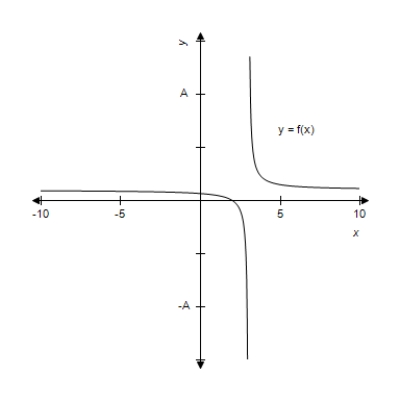
A)4
B)1
C)3
D)0
E)does not exist
 . Use the graph to determine, as well as you can,
. Use the graph to determine, as well as you can,  . Check your conclusion by using the function to determine
. Check your conclusion by using the function to determine  analytically.
analytically. 

A)4
B)1
C)3
D)0
E)does not exist

Unlock Deck
Unlock for access to all 248 flashcards in this deck.
Unlock Deck
k this deck
59
Use a table utility with x-values larger than 10,000 to investigate  . What does the table indicate about
. What does the table indicate about  ?
? 
A)-3
B)3
C)6
D)0
E)does not exist
 . What does the table indicate about
. What does the table indicate about  ?
? 
A)-3
B)3
C)6
D)0
E)does not exist

Unlock Deck
Unlock for access to all 248 flashcards in this deck.
Unlock Deck
k this deck
60
Suppose that the average number of minutes M that it takes a new employee to assemble one unit of a product is given by  , where t is the number of days on the job. What is the domain for this application?
, where t is the number of days on the job. What is the domain for this application?
A)
B)
C)
D)
E)
 , where t is the number of days on the job. What is the domain for this application?
, where t is the number of days on the job. What is the domain for this application? A)

B)

C)

D)

E)


Unlock Deck
Unlock for access to all 248 flashcards in this deck.
Unlock Deck
k this deck
61
For the function in this problem, approximate  near
near  by graphing the function on a graphing utility. Then, zoom in near the point until the graph appears straight, pick two points, and find the slope of the line you see. Round your answer to four decimal places.
by graphing the function on a graphing utility. Then, zoom in near the point until the graph appears straight, pick two points, and find the slope of the line you see. Round your answer to four decimal places. 
A)-0.0835
B)-0.0813
C)-0.0352
D)-0.0358
E)-0.0517
 near
near  by graphing the function on a graphing utility. Then, zoom in near the point until the graph appears straight, pick two points, and find the slope of the line you see. Round your answer to four decimal places.
by graphing the function on a graphing utility. Then, zoom in near the point until the graph appears straight, pick two points, and find the slope of the line you see. Round your answer to four decimal places. 
A)-0.0835
B)-0.0813
C)-0.0352
D)-0.0358
E)-0.0517

Unlock Deck
Unlock for access to all 248 flashcards in this deck.
Unlock Deck
k this deck
62
For the function in this problem, approximate  near the point
near the point  by graphing the function on a graphing utility. Then, zoom in near the point until the graph appears straight, pick two points, and find the slope of the line you see. Round your answer to three decimal places.
by graphing the function on a graphing utility. Then, zoom in near the point until the graph appears straight, pick two points, and find the slope of the line you see. Round your answer to three decimal places. 
A)48.050
B)-9.000
C)-8.950
D)50.970
E)-8.999
 near the point
near the point  by graphing the function on a graphing utility. Then, zoom in near the point until the graph appears straight, pick two points, and find the slope of the line you see. Round your answer to three decimal places.
by graphing the function on a graphing utility. Then, zoom in near the point until the graph appears straight, pick two points, and find the slope of the line you see. Round your answer to three decimal places. 
A)48.050
B)-9.000
C)-8.950
D)50.970
E)-8.999

Unlock Deck
Unlock for access to all 248 flashcards in this deck.
Unlock Deck
k this deck
63
For the function in this problem, find the instantaneous rate of change of the function at the given value.  ;
; 
A)28
B)8
C)16
D)20
E)45
 ;
; 
A)28
B)8
C)16
D)20
E)45

Unlock Deck
Unlock for access to all 248 flashcards in this deck.
Unlock Deck
k this deck
64
The monthly charge in dollars for x kilowatt-hours (kWh) of electricity used by a residential consumer of Excelsior Electric Membership Corporation from November through June is given by the function  .
.
What is the monthly charge if 1,100 kWh of electricity is consumed in a month? Round your answer to two decimal places.
A)$1,100
B)$113.40
C)$96.30
D)$81.30
E)$91.30
 .
.
What is the monthly charge if 1,100 kWh of electricity is consumed in a month? Round your answer to two decimal places.
A)$1,100
B)$113.40
C)$96.30
D)$81.30
E)$91.30

Unlock Deck
Unlock for access to all 248 flashcards in this deck.
Unlock Deck
k this deck
65
For the function in this problem, find the slope of the tangent line at the given value.  ;
; 
A)5
B)19
C)13
D)-1
E)21
 ;
; 
A)5
B)19
C)13
D)-1
E)21

Unlock Deck
Unlock for access to all 248 flashcards in this deck.
Unlock Deck
k this deck
66
The tangent line to the graph of  at
at  is shown. On the tangent line, P is the point of tangency and A is another point on the line. Find the instantaneous rate of change of
is shown. On the tangent line, P is the point of tangency and A is another point on the line. Find the instantaneous rate of change of  at P.
at P. 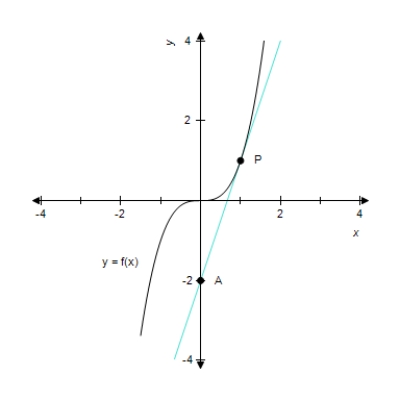
A)-3
B)3
C)-4
D)-5
E)does not exist
 at
at  is shown. On the tangent line, P is the point of tangency and A is another point on the line. Find the instantaneous rate of change of
is shown. On the tangent line, P is the point of tangency and A is another point on the line. Find the instantaneous rate of change of  at P.
at P. 
A)-3
B)3
C)-4
D)-5
E)does not exist

Unlock Deck
Unlock for access to all 248 flashcards in this deck.
Unlock Deck
k this deck
67
The percent p of particulate pollution that can be removed from the smokestacks of an industrial plant by spending C dollars is given by  . Find the percent of the pollution that could be removed if spending C were allowed to increase without bound.
. Find the percent of the pollution that could be removed if spending C were allowed to increase without bound.
A)1,700%
B)17,000%
C)0%
D)200%
E)100%
 . Find the percent of the pollution that could be removed if spending C were allowed to increase without bound.
. Find the percent of the pollution that could be removed if spending C were allowed to increase without bound. A)1,700%
B)17,000%
C)0%
D)200%
E)100%

Unlock Deck
Unlock for access to all 248 flashcards in this deck.
Unlock Deck
k this deck
68
For the function in this problem, approximate  by using the numerical derivative feature of a graphing utility.
by using the numerical derivative feature of a graphing utility. 
A)93
B)75
C)19
D)-51
E)84
 by using the numerical derivative feature of a graphing utility.
by using the numerical derivative feature of a graphing utility. 
A)93
B)75
C)19
D)-51
E)84

Unlock Deck
Unlock for access to all 248 flashcards in this deck.
Unlock Deck
k this deck
69
For the function in this problem, find the derivative, by using the definition. 
A)
B)
C)
D)
E)

A)

B)

C)

D)

E)


Unlock Deck
Unlock for access to all 248 flashcards in this deck.
Unlock Deck
k this deck
70
The tangent line to the graph of f (x) at  is shown. On the tangent line, P is the point of tangency and A is another point on the line. Use the coordinates of P and A to find the slope of the tangent line.
is shown. On the tangent line, P is the point of tangency and A is another point on the line. Use the coordinates of P and A to find the slope of the tangent line. 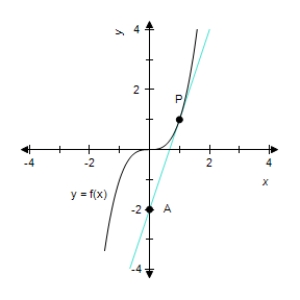
A)2
B)1
C)-4
D)5
E)does not exist
 is shown. On the tangent line, P is the point of tangency and A is another point on the line. Use the coordinates of P and A to find the slope of the tangent line.
is shown. On the tangent line, P is the point of tangency and A is another point on the line. Use the coordinates of P and A to find the slope of the tangent line. 
A)2
B)1
C)-4
D)5
E)does not exist

Unlock Deck
Unlock for access to all 248 flashcards in this deck.
Unlock Deck
k this deck
71
Let  . Use the definition of derivative and the Procedure/Example table in this section to verify that
. Use the definition of derivative and the Procedure/Example table in this section to verify that  . Then, find the instantaneous rate of change of f (x) at
. Then, find the instantaneous rate of change of f (x) at  .
.
A)10
B)2
C)8
D)4
E)-8
 . Use the definition of derivative and the Procedure/Example table in this section to verify that
. Use the definition of derivative and the Procedure/Example table in this section to verify that  . Then, find the instantaneous rate of change of f (x) at
. Then, find the instantaneous rate of change of f (x) at  .
. A)10
B)2
C)8
D)4
E)-8

Unlock Deck
Unlock for access to all 248 flashcards in this deck.
Unlock Deck
k this deck
72
For the function in this problem, approximate  by using the numerical derivative feature of a graphing utility. Round your answer to three decimal places.
by using the numerical derivative feature of a graphing utility. Round your answer to three decimal places. 
A)-0.298
B)-0.421
C)-0.544
D)-0.187
E)-0.655
 by using the numerical derivative feature of a graphing utility. Round your answer to three decimal places.
by using the numerical derivative feature of a graphing utility. Round your answer to three decimal places. 
A)-0.298
B)-0.421
C)-0.544
D)-0.187
E)-0.655

Unlock Deck
Unlock for access to all 248 flashcards in this deck.
Unlock Deck
k this deck
73
Let  . Use the definition of derivative and the Procedure/Example table in this section to verify that
. Use the definition of derivative and the Procedure/Example table in this section to verify that  . Then, find the slope of the tangent to the graph of
. Then, find the slope of the tangent to the graph of  at
at  .
.
A)53
B)23
C)-53
D)-23
E)0
 . Use the definition of derivative and the Procedure/Example table in this section to verify that
. Use the definition of derivative and the Procedure/Example table in this section to verify that  . Then, find the slope of the tangent to the graph of
. Then, find the slope of the tangent to the graph of  at
at  .
. A)53
B)23
C)-53
D)-23
E)0

Unlock Deck
Unlock for access to all 248 flashcards in this deck.
Unlock Deck
k this deck
74
For the function in this problem, approximate  by computing
by computing  with
with  . Round your answer to four decimal places.
. Round your answer to four decimal places. 
A)30.9784
B)31.0360
C)31.0018
D)31.1252
E)30.8784
 by computing
by computing  with
with  . Round your answer to four decimal places.
. Round your answer to four decimal places. 
A)30.9784
B)31.0360
C)31.0018
D)31.1252
E)30.8784

Unlock Deck
Unlock for access to all 248 flashcards in this deck.
Unlock Deck
k this deck
75
For the given function, find the average rate of change over the specified interval.  over
over 
A)0
B)-2
C)6
D)-34
E)34
 over
over 
A)0
B)-2
C)6
D)-34
E)34

Unlock Deck
Unlock for access to all 248 flashcards in this deck.
Unlock Deck
k this deck
76
The tangent line to the graph of f (x) at  is shown. On the tangent line, P is the point of tangency and A is another point on the line. Find
is shown. On the tangent line, P is the point of tangency and A is another point on the line. Find  .
. 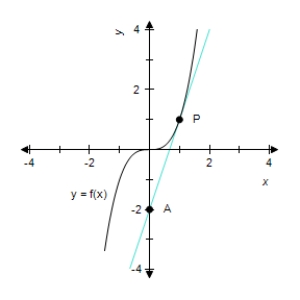
A)2
B)-2
C)1
D)-5
E)does not exist
 is shown. On the tangent line, P is the point of tangency and A is another point on the line. Find
is shown. On the tangent line, P is the point of tangency and A is another point on the line. Find  .
. 
A)2
B)-2
C)1
D)-5
E)does not exist

Unlock Deck
Unlock for access to all 248 flashcards in this deck.
Unlock Deck
k this deck
77
The monthly charge in dollars for x kilowatt-hours (kWh) of electricity used by a residential consumer of Excelsior Electric Membership Corporation from November through June is given by the function  . Is C continuous at
. Is C continuous at  ?
?
A)Yes
B)No
 . Is C continuous at
. Is C continuous at  ?
?
A)Yes
B)No

Unlock Deck
Unlock for access to all 248 flashcards in this deck.
Unlock Deck
k this deck
78
The monthly charge in dollars for x kilowatt-hours (kWh) of electricity used by a residential consumer of Excelsior Electric Membership Corporation from November through June is given by the function  . Is C continuous at
. Is C continuous at  ?
?
A)Yes
B)No
 . Is C continuous at
. Is C continuous at  ?
?A)Yes
B)No

Unlock Deck
Unlock for access to all 248 flashcards in this deck.
Unlock Deck
k this deck
79
Given  , find the average rate of change of f (x) over the following pair of intervals using a calculator if desired:
, find the average rate of change of f (x) over the following pair of intervals using a calculator if desired:  and
and 
A)17.9 and 17.99
B)20.9 and 20.99
C)19.90 and 19.99
D)19.90 and 20.99
E)17.9 and 19.99
 , find the average rate of change of f (x) over the following pair of intervals using a calculator if desired:
, find the average rate of change of f (x) over the following pair of intervals using a calculator if desired:  and
and 
A)17.9 and 17.99
B)20.9 and 20.99
C)19.90 and 19.99
D)19.90 and 20.99
E)17.9 and 19.99

Unlock Deck
Unlock for access to all 248 flashcards in this deck.
Unlock Deck
k this deck
80
For the function in this problem, approximate  by computing
by computing  with
with  .
. 
A)-0.0171
B)0.2730
C)-1.0325
D)-0.0483
E)0.0537
 by computing
by computing  with
with  .
. 
A)-0.0171
B)0.2730
C)-1.0325
D)-0.0483
E)0.0537

Unlock Deck
Unlock for access to all 248 flashcards in this deck.
Unlock Deck
k this deck


